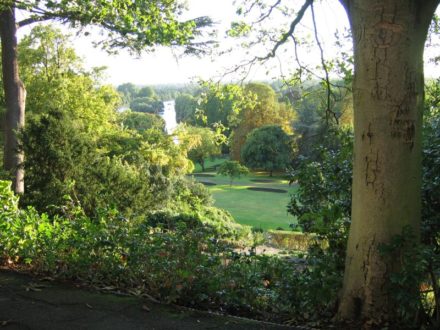

Yesterday in the Treasury select committee, Philip Hammond did not seem particularly keen to answer my accusation that he is the chancellor of the wealthy south. A closer look at the figures, however, suggests he ought to take a closer look before dismissing me out of hand.
On stamp duty for instance, the chancellor is providing a boost to those able to afford to buy a home for the first time costing up to £300,000. In the chancellor’s leafy Surrey constituency of Runnymede, the average home goes for £424,926. In my Bassetlaw constituency in north Nottinghamshire, the average home costs £143,554.
In England the average first-time buyer spends £204,163 on their home. If you’re buying the average first-time home in London, you stand to save up to £5,000 in stamp duty from the chancellor’s exemption. In the north east, however, where the average first-time buyer spends less than the current stamp duty threshold of £125,000, you won’t save a penny.
The average first-time buyer will save £1,660 as a result of the policy. However, as the chancellor stuttered through his answers to me on house prices, he told me that averages are meaningless unless you look at the distribution of the figures behind them. I would imagine that behind that average, there are a lot of big winners in London and the south east and a very large number of people in the north who hardly benefit at all.
The chancellor’s headline measure is nothing more than a cheap gimmick that will help those already relatively well off. The independent Office for Budget Responsibility has already pointed out that just 3,500 additional people will be able to buy a home at a result. Given the cost of this policy, which has already been roundly criticised by the Resolution Foundation among others, surely the chancellor can think of a fairer way to help first-time buyers.
On tax, too, Philip Hammond seems to have focused on the relatively wealthy.
According to Deloitte’s analysis for the BBC, someone earning the average salary of £19,344 in my area is £102 a year better off from the rise in the personal allowance to £11,850. That’s a welcome boost in the back pockets of my constituents, but with consumer prices rising at three per cent a year it’s questionable just how much a 0.5 per cent boost in after-tax pay will achieve if the wages employers are paying don’t rise at all.
For relatively high earners — MPs like me for instance — we get a much bigger boost. On my salary, you would be £236.04 a year better off because the threshold at which higher rate income tax kicks in has been raised.
On transport, this chancellor seems to be suffering from a dearth of ambition. The railcard for people aged 26 to 30 is a welcome boost for leisure travellers but it does nothing for those commuting (because you can’t apply a railcard discount to a season ticket) or for those travelling for business (because you can’t apply a discount at peak times). With Tuesday’s 3.4 per cent rise in rail fares, it seems that the good this policy will do for some has been offset with higher prices for the rest.
A focus on rail passengers is also shamelessly loaded towards the south, where more commuters travel by train to work than anywhere else. Yet again, the chancellor’s policy has done more for those travelling into London from leafy Surrey than those who get the bus every day in my area.
Infrastructure spending too remains dismal in the north of England. The chancellor dismissed the IPPR North report I cited which says that headline transport spend per head was ten times higher in London than in Yorkshire and the Humber. Yet the logic of these figures is borne out by the distribution of major announcements. Whilst I welcome the £337m investment in the Tyne and Wear metro, additional spending on HS2 and £1.7bn for the Transforming Cities Fund, none of this will have much an impact for people outside of big cities. From my constituency, for instance, the commute to Sheffield is 25 miles and takes up to 50 minutes on an infrequent service run on trains first built as buses 30 years ago.
All of this adds up to yet more disappointment from this Conservative government and this politically tone-deaf chancellor.
I have found painfully little in this Budget for people for people in the north who work hard in ordinary jobs to pay the bills. The chancellor has focussed his attention on the groups he knows best—relatively well-off professionals based in London and the south east of England.
George Osborne, for all his faults, used to boast of being the chancellor for the north. I have seen nothing to suggest that Philip Hammond is anything other than the chancellor for wealthy people in the south.



More from LabourList
Andy Burnham manifesto: Greater Manchester mayor reveals three key election pledges in bid for third term
‘Labour should grasp the chance to secure EU visa deal for young workers’
‘How Labour could win a Milton Keynes majority for the first time in decades’